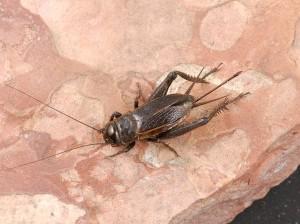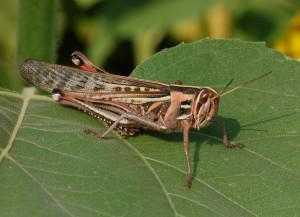Immature grasshoppers and black crickets can pose a problem in no-tillage situations, especially where the previous crop was pasture or forage (e.g. lespadeza). These are conditions where many grasshopper or cricket egg cases may have overwintered in the soil. After hatching, the immature insects eat leaf tissue and often cut the stem of newly emerged seedlings just below the cotyledon seed leaves, causing the plant to die. In situations where insect numbers are high, the feeding can cause significant stand loss and defoliation. Most often there will be concentrations of grasshoppers and crickets at the field edges. This problem that affects a low percentage of the soybean acreage. In some circumstances treatment may be warranted.
Publication date: March 17, 2020
N.C. Cooperative Extension prohibits discrimination and harassment regardless of age, color, disability, family and marital status, gender identity, national origin, political beliefs, race, religion, sex (including pregnancy), sexual orientation and veteran status.


